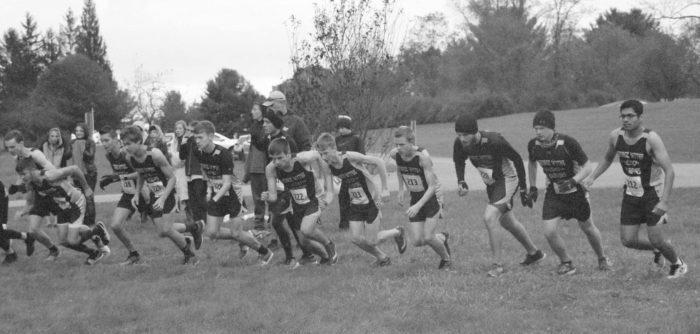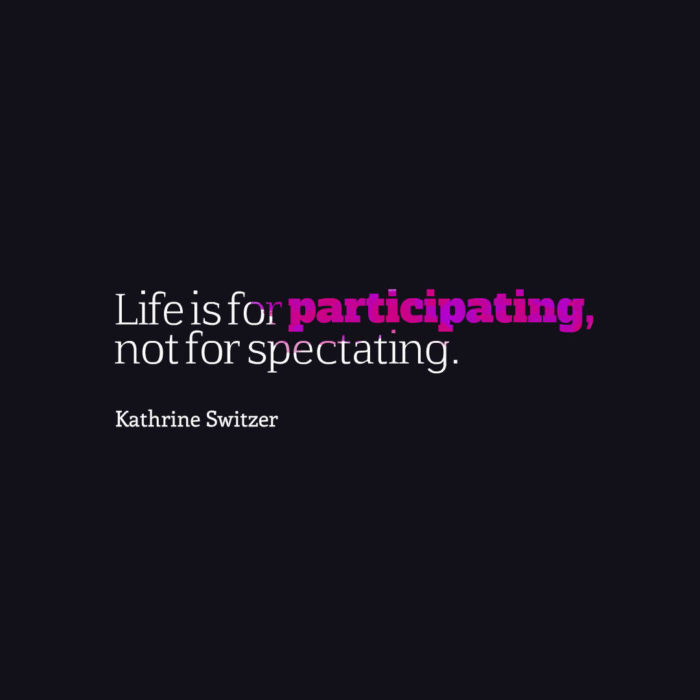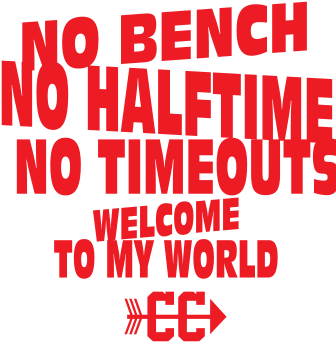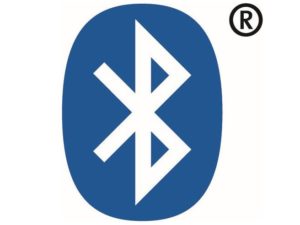Seeing people work hard always inspires me, and last weekend, I witnessed a ton of hard work on a challenging state cross country course in chilly temps. The runners I coach gave everything they had to their races, and some hit a personal record, and some fell just short. Some finished top 15 to qualify for “all state” status, and one finished just one second shy of that goal. One second!
Competition is always exciting, but only sometimes ends with a medal or trophy. In a society that focuses on results- a grade, a time, a number- it’s easy to forget the value of getting out there and doing the work, even if you don’t win. Standardized tests make many teens feel like they only have succeeded if they get the right answer, and get it quickly. What a shallow definition of success.
One of my daughter’s swim coaches said years ago to a group of parents, “Success and failure in athletics are fleeting, but attitude and habits last a lifetime.” I often have to remind my runners that they aren’t defined by one race or one time, but by the collective quality of their work and the attitude they display each day, and especially in times of adversity.

Last year, during the five hour drive up to the state meet, one of our coaches read a bit from a speech by Theodore Roosevelt to inspire our runners and remind them of the value of process. I’d like to revisit that speech, not just for my runners, but for everyone who attempts to better themselves with hard work, who dares to fail in order to succeed. We are often afraid of failure. We shouldn’t be.
THE MAN IN THE ARENA
Excerpt from the speech “Citizenship In A Republic”, delivered at the Sorbonne, in Paris, France on 23 April, 1910 from TheodoreRoosevelt.com
It is not the critic who counts; not the man who points out how the strong man stumbles, or where the doer of deeds could have done them better. The credit belongs to the man who is actually in the arena, whose face is marred by dust and sweat and blood; who strives valiantly; who errs, who comes short again and again, because there is no effort without error and shortcoming; but who does actually strive to do the deeds; who knows great enthusiasms, the great devotions; who spends himself in a worthy cause; who at the best knows in the end the triumph of high achievement, and who at the worst, if he fails, at least fails while daring greatly, so that his place shall never be with those cold and timid souls who neither know victory nor defeat.

So here’s to the people who strive valiantly, who risk defeat in the hopes of victory. Of course we celebrate the trophies, but we should also celebrate the work it took to get them, and in many cases, to not get them.
Thank you, Mr. Roosevelt.
What quotes do you use to encourage hard work?
Thanks for getting inspired with me!


















 At the water tower, Max finds a motley and unlikely crew of his classmates who also received invitations. They find another note, follow its directions to climb the water tower, and find themselves in police spotlights and quickly arrested for vandalism. A set up. But Max doesn’t care, because the Chaos Club has started a prank war, and he’s ready to fight. Armed with a few key rules he knows from heist movies, Max and his companions launch a series of hilarious pranks and end up learning a ton about themselves and each other.
At the water tower, Max finds a motley and unlikely crew of his classmates who also received invitations. They find another note, follow its directions to climb the water tower, and find themselves in police spotlights and quickly arrested for vandalism. A set up. But Max doesn’t care, because the Chaos Club has started a prank war, and he’s ready to fight. Armed with a few key rules he knows from heist movies, Max and his companions launch a series of hilarious pranks and end up learning a ton about themselves and each other.
